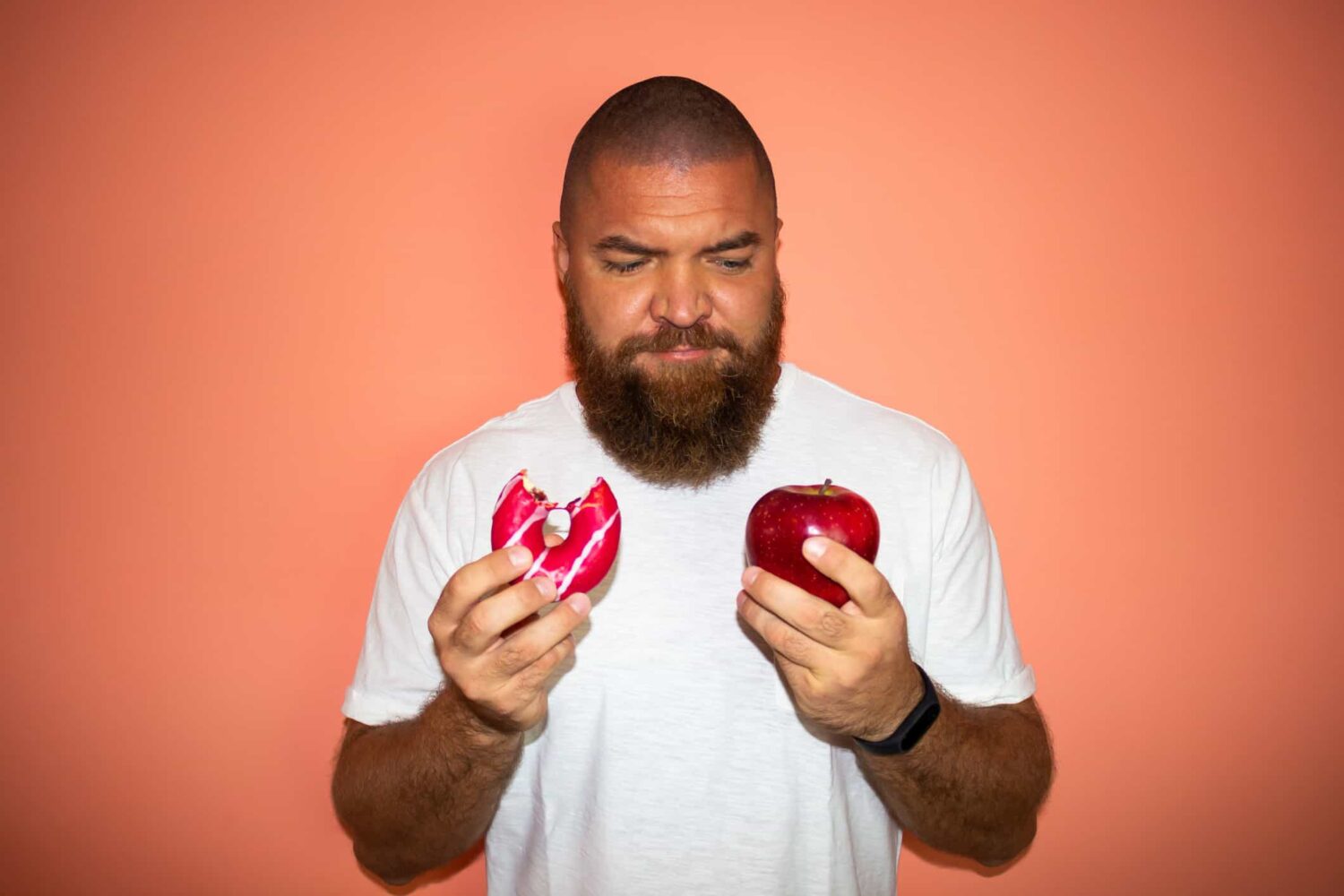"Eat kale! Cut out carbs and sugar! Drink more water!" Sound familiar? With so much media emphasis on healthy eating, it's no wonder so many people feel guilt or shame after indulging in foods on the "forbidden" list.
Food guilt arises when we experience stress and remorse after consuming certain foods, resulting in anxiety, self-criticism, and unhealthy eating habits. It's an internalized response that categorizes foods as either good or bad. This guilt not only robs you of the joy of eating but can also lead to a harmful cycle of emotional eating or overeating, followed by regret and shame.
Read on to learn more about food guilt and discover tips to help overcome it, fostering a more balanced relationship with food.
What Causes Food Guilt?
You're Influenced By Societal and Cultural Factors
Food guilt often stems from societal and cultural influences that dictate what is deemed acceptable or unacceptable to eat. Advertisements, social media, and even family traditions can create unrealistic ideals surrounding food consumption. For instance, the glorification of thinness and diet culture can lead many to feel guilty when they consume anything perceived as "bad" or high in calories.
You Have Specific Rules and Beliefs
It's common to harbor unspoken (and sometimes subconscious) rules regarding what, when, and how much to eat. These beliefs may arise from past dieting experiences, guidance from healthcare professionals, advice from friends and family, or influences from social media. For example, you might feel guilty about eating after 7pm because you believe it will slow your metabolism.
You Label Foods as Good or Bad
Black-and-white thinking about food often leads to feelings of guilt. You may feel proud of yourself for eating vegetables but guilty for indulging in dessert. This mindset can cause you to restrict certain food categories from your diet. However, eliminating specific foods usually increases cravings because we naturally want what we can't have.
Eventually, you might give in to these cravings, which often results in guilt after eating the "forbidden" food. This cycle of bingeing and restricting is a common source of food-related guilt, trapping you in a harmful pattern.
You Struggle with Portion Sizes
With the emphasis on counting calories, whether through low-calorie diets, intermittent fasting, or focusing on specific macronutrients like protein and carbs, portion control guidelines can make you feel restricted to a very precise amount of food, implying that anything beyond that is unacceptable. If you eat outside the stated guidelines you feel like you've failed, which leads to more guilt.
The Mental Health Implications
Persistent food guilt can have serious psychological effects. It can lead to anxiety, depression, and stress, significantly impacting overall mental wellness. This constant preoccupation with food and body image can contribute to disordered eating patterns and even eating disorders such as anorexia or binge-eating disorder. You may find yourself trapped in a cycle of negative thoughts and feelings, where the guilt associated with eating certain foods or the amount they consume becomes overwhelming.
Understanding the mental health implications of food guilt is crucial. Recognizing the link between your thoughts about food and your emotional well-being can help you take steps towards reclaiming a healthier mindset. By addressing these negative thought patterns and fostering a more balanced approach to eating, you can work towards improving your relationship with food and your body. Seeking support from mental health professionals or nutritionists can also be beneficial in navigating and overcoming the complex emotions tied to food guilt.
Coping Strategies
Addressing food guilt requires practical strategies to help you manage these feelings effectively. Here are some coping mechanisms you can adopt:
- Reframe Your Thoughts: Instead of labeling foods as "good" or "bad," try to view them neutrally. Understanding that all foods can fit into a balanced diet may help reduce feelings of guilt.
- Practice Mindful Eating: Focus on the experience of eating—notice the flavors, textures, and aromas. Mindful eating encourages you to enjoy your meals without distractions and can help you listen to your body's hunger and fullness cues.
- Try Self-Compassion: Practice being kind to yourself, and replace negative criticism with positive self-talk. Recognize your worth and treat yourself with the same empathy and understanding you would offer a friend.
- Seek Support: Engage with friends or family members who understand your struggles. Sharing your feelings can provide relief and help you realize you’re not alone. Also consider speaking with a therapist trained in body image and food related concerns.
Remember
Addressing food guilt is crucial for maintaining overall mental wellness. The societal pressures surrounding food, combined with personal experiences, can create complex emotions that may impact your quality of life. By implementing coping strategies and seeking professional support when needed, you can begin to heal your relationship with food. Remember, it’s okay to seek help, and doing so is a brave step toward nurturing your mental health.
If you resonate with any of these feelings and are ready to take action, don't hesitate to reach out to a mental health professional. Your well-being is worth it!
